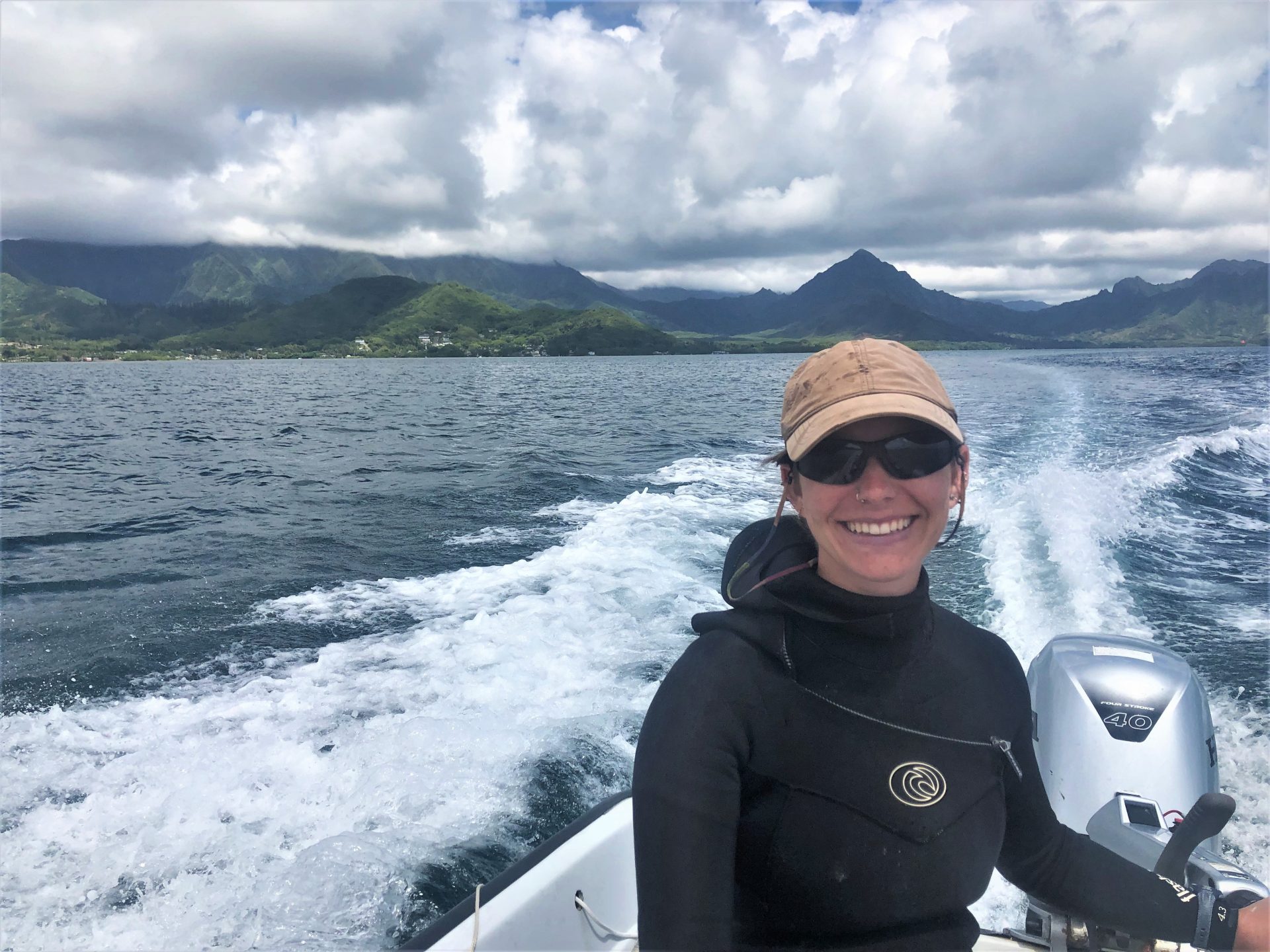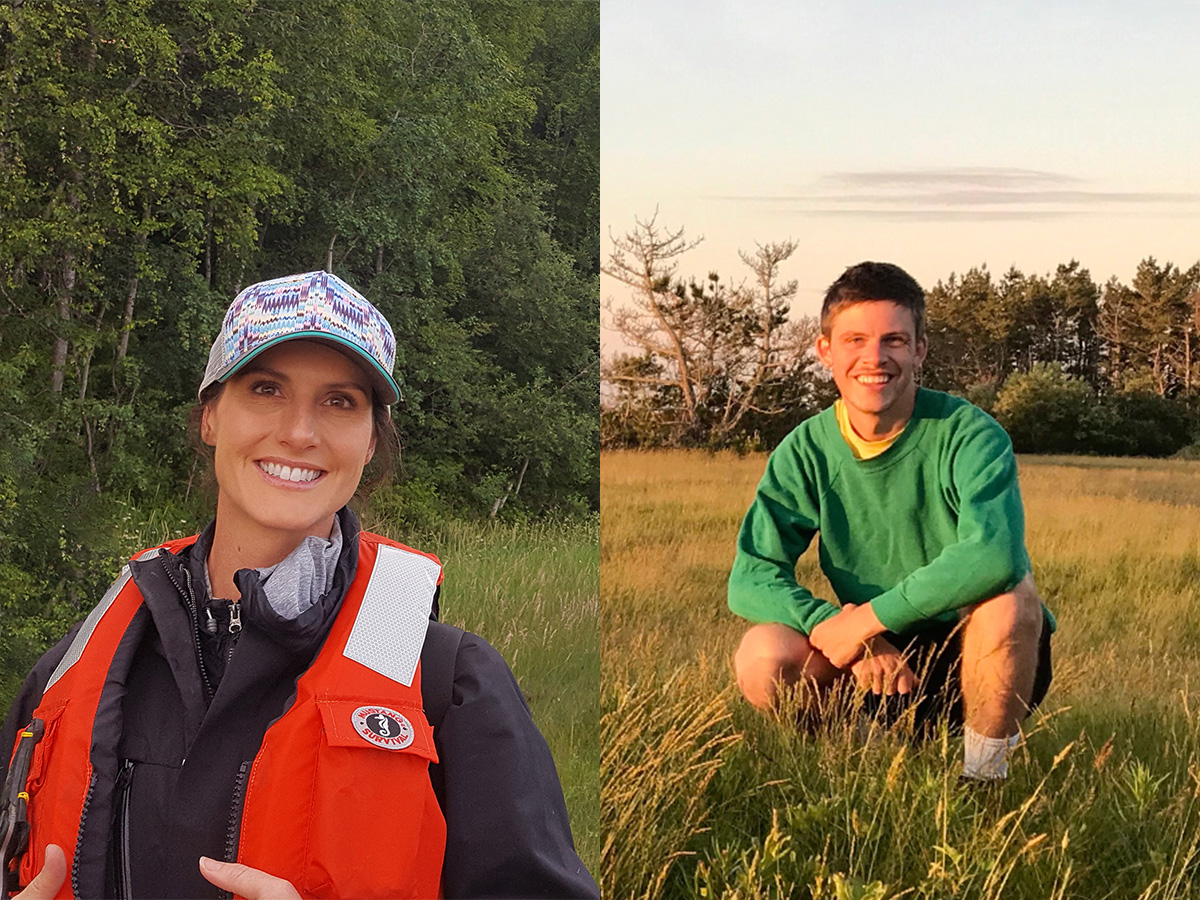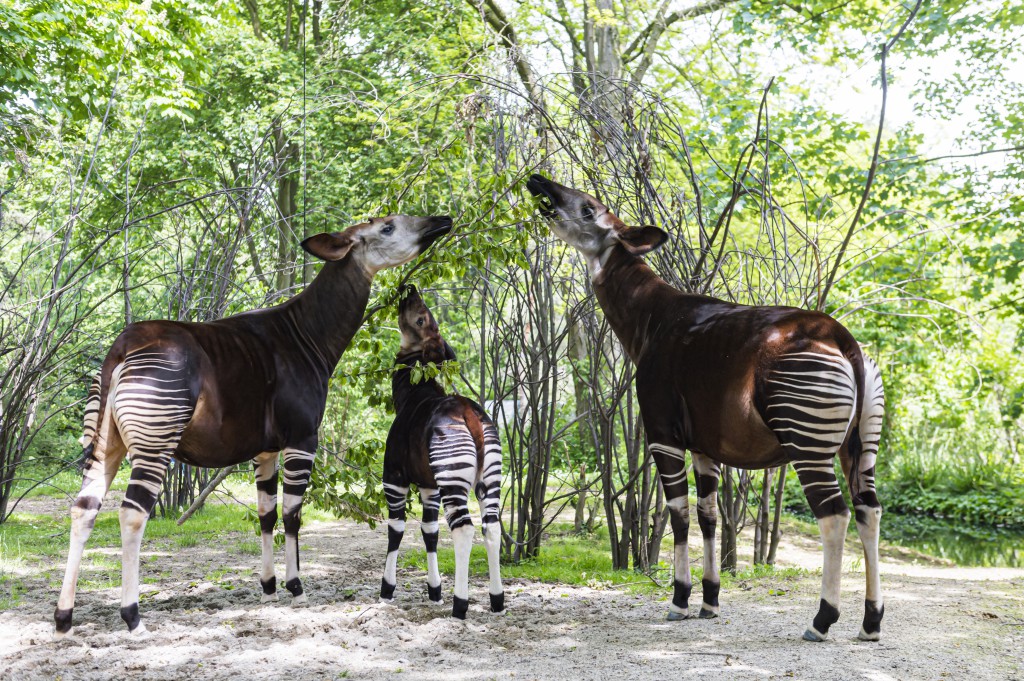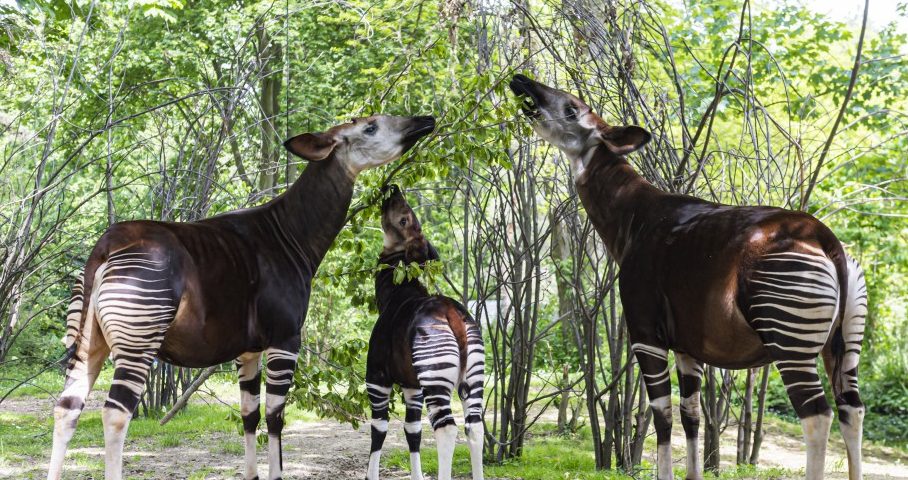
Great Ecology Welcomes Geana!
November 15, 2022
Great Ecology Welcomes Jennie & Chase!
December 20, 2022
Three Okapi (Okapia johnstoni) in the Ituri Forest in the Democratic Republic of Congo. Okapi are an example of the unique biodiversity of the Ituri Forest. The species are endangered species at risk of extinction and are threatened by deforestation. Photo credit: Basel Zoo
Ecology at a Global Scale: UN Biodiversity Conference Week
Author: Thea R Lemberger
The United Nations (UN) Biodiversity Conference, also called Conference of the Parties 15th meeting (COP15) kicks off this week, December 7-19th in Montreal, Canada. The COP meets every two years on a wide range of topics and is the governing body of the Convention on Biological Diversity (CBD). The CBD has worked toward the conservation of biodiversity since its inception at the Earth Summit in Rio de Janeiro in 1992.
We want to highlight COP15—as it may get less recognition than climate summits—considering climate change and biodiversity loss are deeply interwoven. It is estimated that more than 30% of human caused CO2 emissions that exacerbate the climate crisis are re-absorbed annually into the land surface through forest regrowth, increased photosynthetic CO2 uptake and sequestration, and an additional 25% absorbed by the ocean. These powerful land and ocean ecosystems are natural sinks that are the leading natural climate mitigation strategy. These ecosystems remain resilient and functional largely due to their biological diversity.
The primary goal of COP15 is adopt a Post-2020 Global Biodiversity Framework, for “living in harmony with nature.” The Post-2020 Global Biodiversity Framework seeks to set the standard for the next decade—proposing a list of goals to achieve by 2050, with milestones and action items for 2030.
Taking on ecological issues on a global scale is a large task—especially when not all UN-member nations are at the table. Even though the United States (US) championed the idea of the Biodiversity Treaty in the 1980s, and played a key role in kickstarting the effort off the ground in the early 1990s, it is the only member of the UN not to ratify the CBD.
COP15 sets ambitious goals addressing the world’s biggest ecological problems, including ensuring food production is sustainable and the sustainable use of biodiversity, conservation through expanding protected areas, fair benefit sharing, and adequate means of implementation.
If you want to follow COP15, you can:
- Watch UNEP’s Nature Live Stream for latest news and updates;
- Visit the official website of the UN Biodiversity Conference; and
- Follow @UNBiodiveristsy and @UNEP on Twitter.
What does COP15 mean for the environmental industry?
COP15 is important for setting the stage and standard for the environmental industry—the conference is a forum for nations and environmental professionals to come together, virtually or in person, to share ideas, inspire, and make concrete decisions about how to mitigate and adapt to the climate crisis and contingent issues like, biodiversity loss. In the environmental industry, planning and managing at a regional scale is critical—sometimes called a watershed-wide approach. This approach takes into account the regional issues that are unique to each watershed and each nation. Scaling up environmental management to cross municipal boundaries, state lines, and across oceans—is a whole different beast. Protecting biodiversity at a broader scale will require additional coordination and cooperation, including by ecological consultants and other environmental professionals, who already understand how the loss of biodiversity in one place can negatively impact biodiversity in other places.
Great Ecology is a leader in the ecological consulting space delivering innovative environmental solutions at the local, state, national, and global level. We are privileged to work in partnership with nature and with project partners—in ecosystems all over the world. Biodiversity supports the ecosystems we work in and love. We look forward to following how COP15 will shift the standard and shake up the climate discussion by giving biodiversity center stage.

